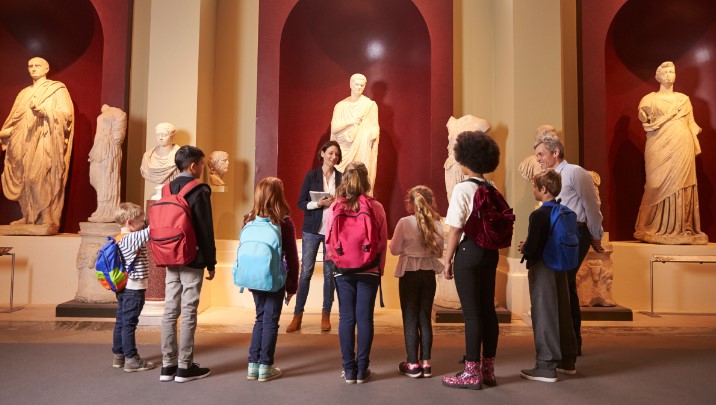What Role Do Field Trips Play in Enriching School Life?

Beyond textbooks and lectures, school life offers students an engaging platform for hands-on learning, cultural immersion, and personal growth. By visiting museums, historic sites, natural wonders, or natural events – students transcend theoretical limitations by experiencing tangible things firsthand! Adventure and education merge, stimulating curiosity while developing an unquenchable thirst for learning that goes far beyond academic circles.
Field trips provide valuable cultural connections between students and heritage and foster pride and unity within communities. Socially, these excursions foster teamwork, communication, and leadership abilities that enable well-rounded individuals.
Field trips have numerous roles in shaping students into informed yet inquisitive individuals. Moreover, experiences like these not only serve to relax students and teachers alike but are also of tremendous educational benefit to both. Let’s understand why it is important to include field trips during school.
Role Of Field Trips During School Life
1. Real World Learning
Teachers understand the value of field trips for providing real-world experiences to every student in our care. Each field trip, no matter what the destination is, adds something new and valuable to a student’s understanding of our world.
School field trips provide real-world learning by giving students tangible experiences outside the classroom. These excursions introduce academic concepts in real-world applications that bridge theory to reality. The top CBSE schools in Jaipur, like VSI school Jaipur, include field trips for all the classes during the academic years. They can explore science museums, historical sites, and nature reserves.
Exposure to academic knowledge through field trips during school life not only deepens academic understanding but also builds essential life skills like adaptability, problem-solving, and holistic perspective that go beyond textbooks. Field trips bring conceptual concepts alive for their participants – enriching educational journeys with invaluable experiential learning!
2. Access Our Communities
Students gain access to tools and environments not typically found within school walls. Our communities serve as invaluable learning labs. Field trips provide or view historical artefacts up-close before giving presentations on public stages, among many other experiences that help cement learning while supporting key academic concepts.
3. Social and Emotional Development
Field trips during school play an integral part in shaping students’ social and emotional development beyond the academic realm. Field trips provide ideal settings for team-building exercises and camaraderie among classmates outside classroom environments. Engaging with classmates beyond this structure fosters stronger friendships while strengthening learning communities. VSI International School prioritizes such experiences, creating a supportive and enriching learning community.
Field trips play an integral role in building confidence and independence among students. Navigating unfamiliar environments, solving problems, and adapting to unfamiliar circumstances all help nurture personal development as individuals. Conquering challenges beyond one’s comfort zone builds resilience and self-assurance that last beyond just this trip itself.
4. Field Trips as Motivational Tools
Anticipation surrounding field trips during school life generates special excitement among students. Stepping out into an unknown environment to examine real-life applications of studies adds another level of motivation for learning. Moreover, abstract concepts become tangible and applicable when experienced firsthand during these experiences.
Field trips also serve as sources of career guidance during school life. Exposure to various professions and industries allows students to connect classroom learning to potential real-world careers; encounters can spark passion or even influence future academic and career choices, making field trips an indispensable element in encouraging students to explore beyond school environments and pursue their interests outside.
5. Cultural Enrichment
Field trips provide students with cultural bridges that bridge history, art, and heritage together. Exploring museums, historical landmarks, or art galleries provides firsthand experiences to cultivate an appreciation of diversity.
Imagine students strolling through a local history museum, immersed in artefacts from their community that tell its tale and spark feelings of pride while at the same time encouraging active involvement in protecting and celebrating its heritage. This experience during school life would surely foster pride while simultaneously giving an education on cultural preservation and celebration.
6. Stimulating Curiosity
Field trips have the power to stimulate curiosity and ignite an appreciation of learning in students. Engaging with new environments, sights, and experiences ignites their sense of wonder – creating an endless realm of possibility that encourages them to seek answers to questions they might be exploring in school and expand on academic pursuits further.
An astronomy field trip, for instance, in which students gaze upon the night sky through telescopes, could spark students’ future career paths as astrophysicists. Engaging with celestial bodies hands-on can turn casual interest into a passion – providing the foundation for further academic discovery and personal achievement.
7. Environmental Awareness
With environmental issues of increasing importance today, field trips during school life that emphasize nature and ecology play a crucial role in cultivating environmental consciousness among students. Visits to national parks, botanical gardens, or wildlife reserves immerse students in nature while sparking an innate responsibility towards protecting it for its future preservation.
These experiences not only educate students on ecosystems, biodiversity, and conservation, but they also foster an appreciation of nature that will enable them to make informed choices that contribute towards its sustainable well-being.
8. Memory Enhancement
Field trips during school life form lasting memories in students. Their multisensory experience–seeing, touching, hearing, and sometimes tasting or smelling–creates vivid imagery for them that improves retention of information more so than traditional classroom lectures could do.
Imagine being part of a school group visiting an ancient battlefield for their study tour. Standing where significant events took place, coupled with hearing stories shared by knowledgeable guides, creates an unforgettable memory that transcends textbooks.
9. Cognitive Development
Field trips promote cognitive development by activating different areas of the brain. Activities, challenges, and stimuli encountered on excursions encourage an increase in critical thinking skills like critical problem-solving and decision-making abilities.
Consider this. A visit to a science and technology centre could involve interactive exhibits that require students to analyze and solve problems. Hence, this makes learning enjoyable while sharpening cognitive skills that are valuable in academic and real-world settings.
10. Helps Bonding With Their Classmates
Educational trips during school life provide students with an ideal platform for forging bonds not only among themselves and with adults they know well but also with teachers or adults in a new environment. Such excursions provide children with opportunities to open up, socialize, and form closer bonds outside the classroom.
Conclusion
Field trips are more than a short break; they play an integral part in education and school life that emphasizes holistic development. Students gain invaluable experiences that mould both their character and academic journey from visiting unfamiliar locations.



